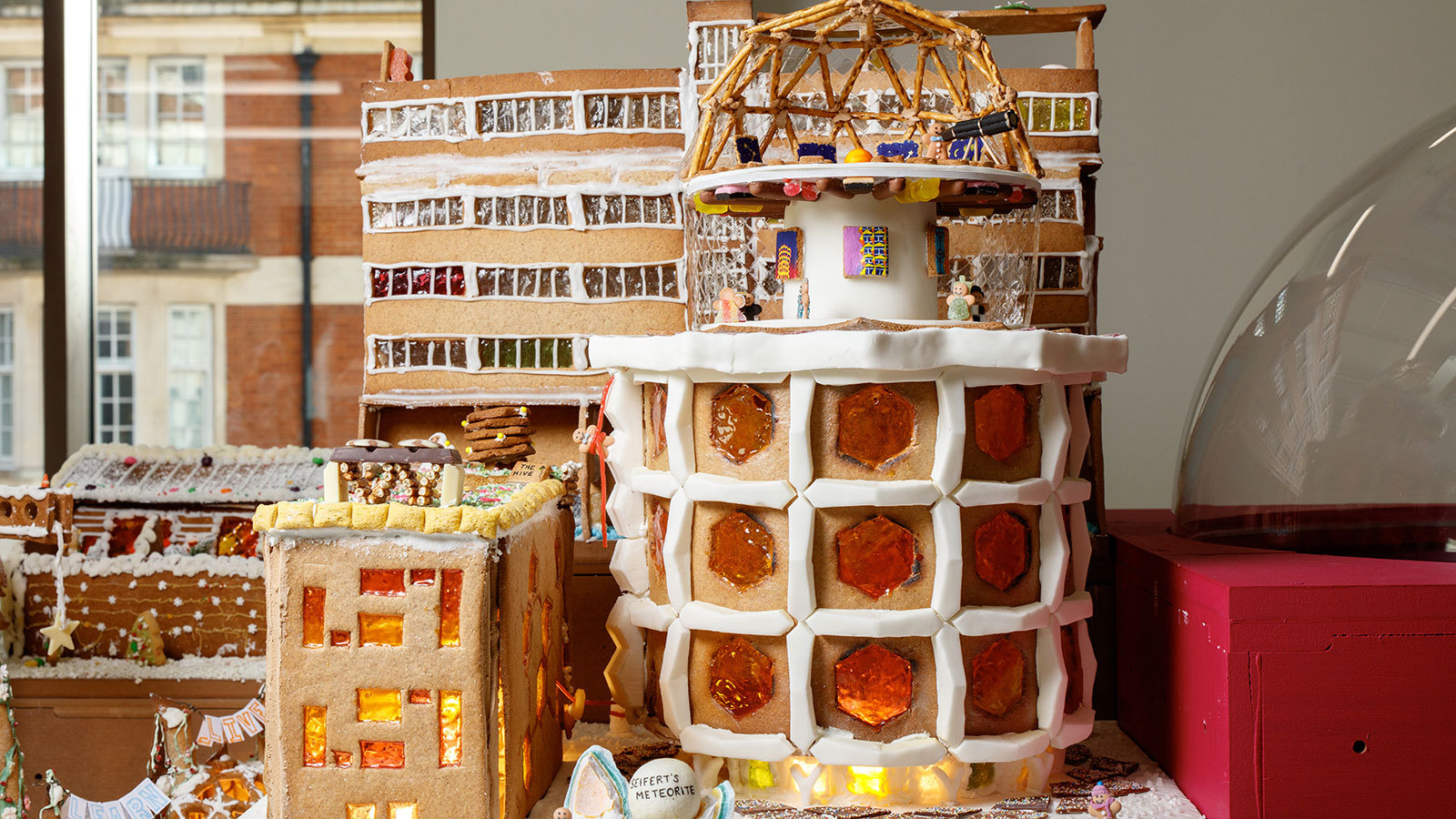
Apart from having an entire Gingerbread City to ogle, it’s been a busy year for London architecture buffs. The BT Tower began its transformation into a hotel; Battersea Power Station launched its own mini-Olympic Games, the Truman Brewery released its new conversion plans, and the Grade II-listed Smithfield Market announced its closure, prompting architects everywhere to wonder: what next?
So the studios called upon last month to render their favourite projects in the season-appropriate medium of gingerbread had a lot of inspiration. Nearly 50 of them came together at the best of London’s Museum of Architecture to contribute to its current exhibition The Gingerbread City, running at the Gaumont Building in Chelsea until 29 December. The theme? Recycled City.

True to its mission to engage the public with the built environment and architectural innovations, the museum challenged some of the city’s most distinguished practices — including Zaha Hadid Architects, Wilkinson Eyre and Chris Dyson among them — to build an edible structure to zhuzh up topics like preservation, education and sustainability.
EPR Architects, based in South London, Manchester and Poland, built an epic construction site depicting the ruins of the Aylesbury Estate, currently in the midst of a difficult rebuild. The architects’ vision for the site, executed in Sour Patch Kids, popcorn and plenty of gingerbread slab, includes upgraded flats and an extension of the Bakerloo Tube line. East London’s Atelier Ten reimagined the Brutalist landmark Space House as a climate change monitoring facility with hard candy lighting and a pretzel observation dome.


Buro Happold, a practice with eight offices across the UK, tackled the monumental Battersea Power Station with candy-cane chimneys forged from icing. Engineers from ElliottWood, a practice in London and Nottingham, drew inspiration from the firm’s expertise in material reuse by creating a 'deconstruction site' with a liquorice crane and a team of gingerbread men recording, sorting and stockpiling materials for future projects. 'Wherever possible,' its materials say, 'components like the Polo Mint columns and gingerbread walls are retained at their highest value. When that’s not feasible, these elements are recycled or reimagined into new uses—illustrating a fully circular gingerbread economy.”

'For centuries, cities like London have been transforming and converting old places and buildings into new and exciting spaces,' says Melissa Woolford, founder and director of the Museum of Architecture. 'The Gingerbread City brings together leading architects and designers to inspire us to think about sustainable design, breathing new life into our environment while preserving its heritage.'
Gingerbread City, at The Gaumont, Chelsea, 196-222 King's Rd, London SW3 5XP until December 29 2024.
Adult £13 / Child £8 / Concessions £11 available in advance or on the door.







